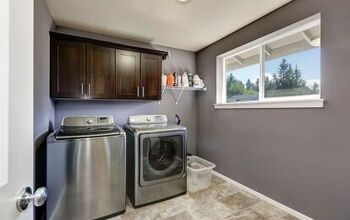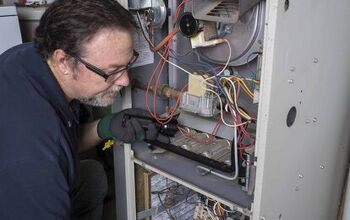Can A Landlord Evict You For Being Messy? (Find Out Now!)

A lease between tenant and landlord can be a precarious one. The landlord sees the relationship as an investment, a means for making income from their property. For the tenant, it is a place to live and possibly a bridge to a better place in the future.
From time to time, there may arise issues where a landlord wants to evict a tenant. There have been a ton of reasons before, but one of the more common ones is whether or not you can be evicted for being messy. The short answer is that, yes, you can but it gets a little more complicated. Typically it is only in the manner of extreme filth or damage.
You Can’t be Kicked Out for a Mess…
There is a distinction between “messy” and “filthy”. That distinction is important when it comes to the topic of eviction. Given the serious nature of an eviction, it is important that a distinction be made between the two.
If you have some dirty dishes out or laundry piled high, that is not enough for a landlord to evict you. In most cases, they won’t know about it so long as you don’t let those issues get out of control. Being messy is fairly normal and usually not detrimental to that property.
…But You Can Be Kicked Out for Filth
That said, there is a clear difference between being messy and keeping a filthy apartment. Consider it in more practical terms. Will your laundry piling up impact the woman across the hall in any way, shape, or form?
Nearly every rental agreement has a provision that requires renters from creating a situation that interferes with the enjoyment, safety, or health of both the landlord and other tenants within the building. If you think that your living situation could be putting those in jeopardy, make the requisite changes before things go awry.
What Kind of Filth is Required for an Eviction?
Though it can vary from state to state and city to city, there have been more than a few cases where a landlord has been able to successfully evict a tenant for filth. In most cases, the rental agreement should spell out those very specific things, but some common sense applies. Still, here are some of the most common reasons that an eviction could come:
- Evidence of roaches or rodents (both live and dead as well as feces)
- Pet feces or urine that is not contained in a litterbox
- Mold growth on ceilings, walls, and flooring
- Pungent, noxious odors coming from the apartment that are not linked to cooking
- Permanent dirt on counters, floors, or walls
- Damaged or broken appliances as a result of uncleanliness
- Dirtiness that interferes with the building’s infrastructure, things like plumbing and HVAC
As you can see, that goes above and beyond a simple mess. When it crosses the line into being dangerous, then you run the risk of eviction. For the most part, though, if you can keep things messy at best, you should be okay.
Can a Landlord Come into My Apartment and Inspect Anytime?
If you consider yourself to be a messy tenant, you may be worried about your landlord performing a surprise inspection. The short answer is that this depends on the local and state laws as well as the rental agreement.
Most state provisions dictate that the landlord can inspect the apartment, but not without at least 24 hours’ notice. In some instances, that can be 48 hours. Basically, they can’t drop in on you unannounced; they have to provide notice of some kind before doing so.
Will I Be Evicted for Being Messy?
In most cases, the answer is that it depends. In the event of the outlined filth from above, it comes down to the discretion of the landlord. If you have no prior incidents or occurrences, they may issue a first warning or even a written warning. Some may not go past that first warning, however, so pushing the issue again is unwise.
Unless the damage is severe enough, you can usually talk things through with the landlord to come to a resolution. That presents the opportunity to make things right so that you can maintain your lease and keep your apartment. Some landlords may not be so forgiving, so keeping a certain level of cleanliness is essential.
What is the Process Like for Being Evicted?
Let’s say that your landlord is not so forgiving. That may either be because they have had to repeat themselves on the same issues numerous times or they simply are not agreeable. In any event, you have been evicted and the eviction process can start.
There are steps that must be followed by the landlord prior to an eviction. If any of these steps are skipped, the landlord may have a more difficult time formally evicting the tenant.
Step 1: Eviction Notice
First and foremost, the landlord must issue a written eviction notice. Verbal notice does not count as it is too difficult to prove. Without a written eviction notice, there is nothing that the landlord can do and the lease will be considered in good standing until further notice.
The eviction notice is generally left under doors or in mailboxes to avoid confrontation. On rare occasions, they may sit you down and tell you that they have decided to evict you and outline the reasons.
Step 2: Unlawful Detainer Paperwork
This is a special court process but one that moves rapidly through the court system. The unlawful detainer is basically protection for the landlord if the tenant does not want to leave. In some cases, tenants may refuse to leave a property after being evicted.
Though the unlawful detainer does not need to be served should a tenant be compliant with the eviction, it does act as backup. Should the tenant refuses to leave, this is what they would need to start the formal eviction process through the courts.
This happens a lot more than you may realize and is in place for a reason. When the landlord gets an unlawful detainer order, there is literally nothing that the tenant can do.
Step 3: Allow Time for Departure
The tenant will be given time to respond to the claim and possibly resolve the issue. If there is no resolution, they are forced to leave. The amount of time that a tenant has to vacate the premises depends on the city and state laws. For the most part, the time period to respond to the eviction complaint is about five days.
Should you choose not to respond or fight the issue, it is just a matter of vacating the premises. Fighting the eviction complaint requires potentially going to court. There are fees and other costs associated with fighting the complaint, so be aware of that if you plan to fight the eviction.
Step 4: The Formal Move-Out
When the tenant chooses not to fight the decision, a formal move-out is orchestrated through the local sheriff’s office. Rarely will the landlord perform the eviction themselves as it can lead to tension and potentially to violence.
By having the sheriff’s office come out, it ensures that things remain as orderly as possible. It is not an ideal situation and can be potentially embarrassing but is meant to protect both parties from further escalation.
What are the Landlord’s Rights When it Comes to Dirty Tenants?
The landlord has what is known as the right to enjoyment on a rental property. Tenants also have the right of enjoyment for their individual residences. By having to deal with a dirty tenant, there can be a hindrance to those rights.
Allowing dirty tenants to remain on the property has a serious risk for the property as a whole. Those who do damage to the property can potentially impact other tenants and hurt your ability to lease out that unit as well as others. That is why it is important to act at the first sign of a potential problem. Ideally, the tenant will work with the landlord, though that may not be the case.
Can Landlords Do Anything to Prevent Dirty Tenants?
There really are only a few things that can be done to prevent situations like this. Unfortunately, people are people and sometimes their living habits can be detrimental to not only themselves, but those around them.
As a landlord, you could try to completely outline the cleaning requirements before move-in. It is important to cover those areas of filthiness and relay the importance that they hold. Make it known that severe uncleanliness can lead to eviction. For most, the threat of eviction is enough to prevent major issues.
At the pre-move inspection, you can outline the proper clean practices of a quality tenant. Explain how each of the areas within the property can be kept clean. Discuss how mold can possibly accumulate if not properly cleaned. Make it known that rodents and bugs can become an issue if the area is improperly cared for. It isn’t that much but it can be enough to prevent a dirty tenant.
Related Articles

Ryan Womeldorf has more than a decade of experience writing. He loves to blog about construction, plumbing, and other home topics. Ryan also loves hockey and a lifelong Buffalo sports fan.
More by Ryan Womeldorf



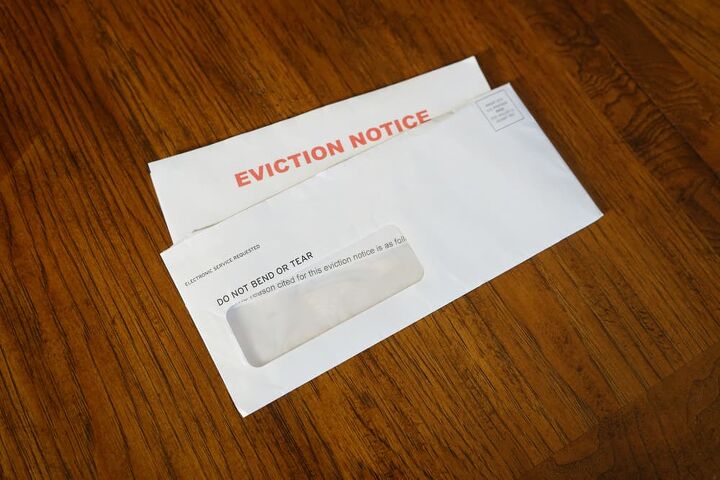






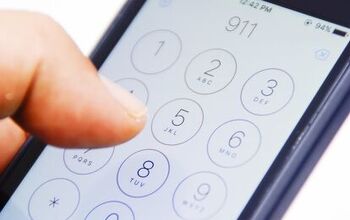


![10 Best Scroll Saws for 2022 [Ultimate Reviews & Buyer's Guide]](https://cdn-fastly.upgradedhome.com/media/2023/07/31/9070684/10-best-scroll-saws-for-2022-ultimate-reviews-buyer-s-guide.jpg?size=350x220)
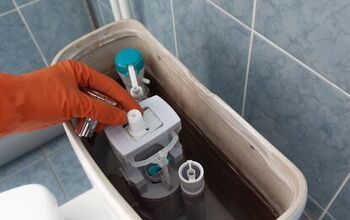




![10 Most Dangerous Neighborhoods in Baltimore [Updated]](https://cdn-fastly.upgradedhome.com/media/2023/07/31/9075655/10-most-dangerous-neighborhoods-in-baltimore-updated.jpg?size=350x220)
